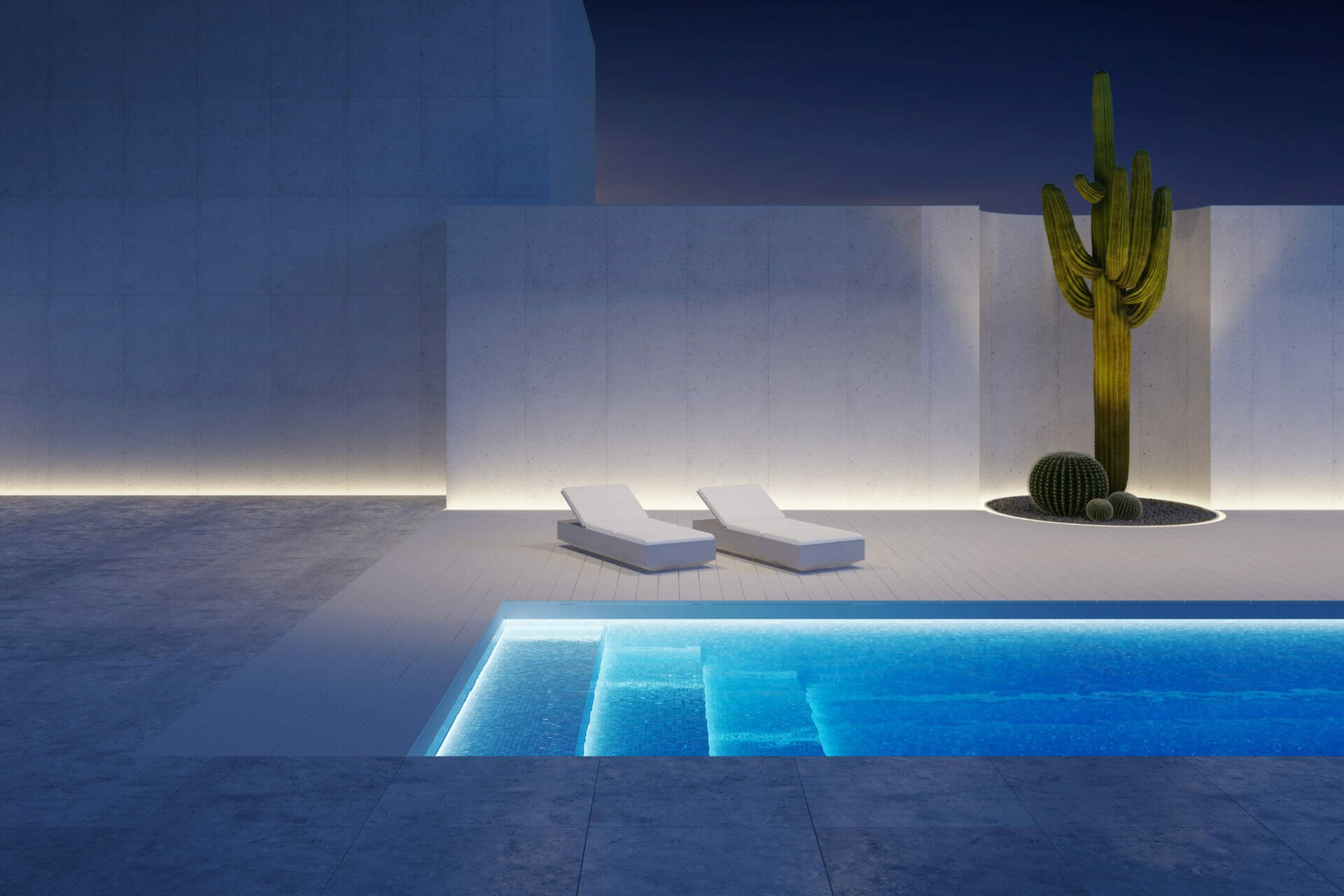What to know about swimming pools in Phoenix
Swimming pools can be a great source of fun, relaxation, and exercise for families, but they also come with a lot of responsibility. Whether you’re considering installing a pool in your backyard, are looking to upgrade an existing one, or just want to learn more about pool maintenance and safety, Saturn Pool Company is here to help! In this blog post, we’ll cover everything you need to know about swimming pools, from the different types of pools available to important tips for pool maintenance. With the right information, you can ensure your pool remains a safe and enjoyable place for everyone.
The Different Types of Swimming Pools
When it comes to swimming pools, there are several different types available on the market. Each type has unique features and advantages; depending on your budget, lifestyle and backyard size, one may be more suitable than another. Here are some of the most popular types of swimming pools:
In-ground pools: If you have a large backyard and want a more permanent swimming solution, an in-ground pool is a great option. They come in all shapes and sizes, including oval, rectangular, kidney-shaped and round. In-ground pools generally require more maintenance than above-ground pools and require professional installation, but they can last for many years with proper care.
Indoor pools: If you live in an area where the weather doesn’t allow for outdoor swimming, an indoor pool is a great alternative. These are built inside either a separate structure or as part of an existing building and typically use specialized air ventilation systems to keep the air temperature and humidity at a comfortable level for swimming.
Lap pools: A lap pool is designed for serious swimmers seeking exercise. They’re typically rectangular and typically measure up to 50 meters long. Lap pools require more maintenance than other types, but they offer an effective way to stay fit and healthy.
The Benefits of Owning a Swimming Pool
Swimming pools offer a wide range of benefits, both physical and mental. In addition to the obvious physical benefits like improved cardiovascular health, strength, and flexibility, swimming is a great way to de-stress and relax.
Swimming pools also benefit those with limited access to public recreation centers. For families or individuals who may not be able to travel far for leisure activities, having a pool in their backyard allows them to enjoy a dip any time they want.
In addition, having a swimming pool can be an excellent investment. A pool increases the value of your property and gives potential buyers another reason to consider your home. And if you’re looking to host gatherings at your place, a pool can be the perfect place to entertain.
Swimming can also bring positive social interactions, particularly for young children. Playing in the water and playing together can help foster good peer relationships and increase self-confidence.
The Cost of Owning a Swimming Pool
No matter what type of swimming pool you choose, there will be associated costs. The cost of a swimming pool can vary greatly depending on its size, the type of materials used for construction, and other factors.
The most expensive type of pool is an in-ground concrete pool. These pools require excavation, concrete forms, steel reinforcements, and tile.
On top of the initial cost of purchasing or constructing a swimming pool, there are ongoing maintenance and upkeep costs. These costs include chemicals, cleaning supplies, pool covers, and repairs that may be needed over time. Maintenance costs for a swimming pool can range anywhere from $50+ per month, depending on the size and complexity of the pool.
The Maintenance Required for a Swimming Pool
When you decide to take the plunge and buy a swimming pool, it is important to be aware of the amount of upkeep and maintenance required. There are several key factors to consider when maintaining a swimming pool.
First, it is important to maintain proper chemical balance. Pool chemicals such as chlorine and bromine help to keep your pool free from bacteria and algae. A balanced pool also has a pH level between 7.2 and 7.6. It is best to test your pool’s pH level at least once a week with a testing kit or strips.
Second, it is important to keep your swimming pool clean. This includes removing leaves, twigs, dirt, and other debris that can accumulate in your pool. You should also regularly brush and vacuum the sides of your pool to prevent algae buildup.
Third, it is important to ensure your pool is running efficiently. This includes inspecting and cleaning the filter regularly, checking for leaks in the pool plumbing, and ensuring the water circulation system is working properly.
Final Thought
Having a swimming pool in your home or backyard can be a great way to create an outdoor oasis and add value to your property. It is important, however, to be aware of the costs and maintenance associated with owning a swimming pool. At Saturn Pool Company, we provide high-quality products to ensure your swimming pool is safe and enjoyable for years to come. Contact us today through our website.

